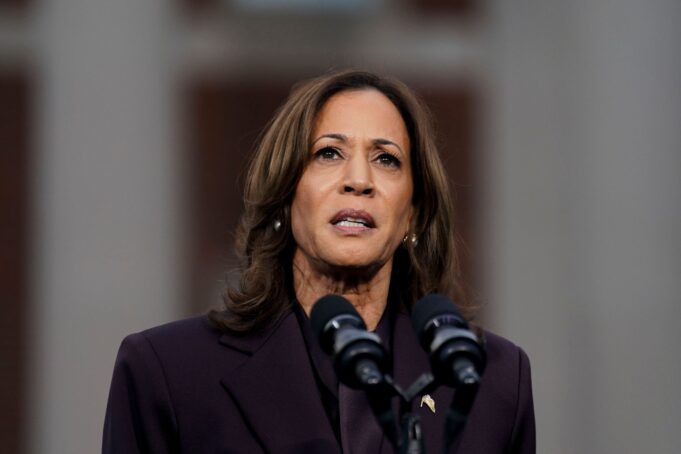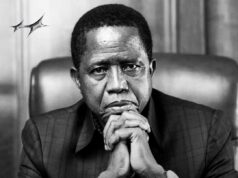Kamala Harris (born October 20, 1964, Oakland, California, U.S.) is the 49th vice president of the United States (2021– ) in the Democratic administration of Pres. Joe Biden. As the Democratic Party’s nominee in the presidential election of 2024, Harris was defeated by the Republican nominee, former president (2017–21) Donald Trump.
In July 2024, following his poor performance in a nationally televised debate with Trump, Biden abandoned his bid for reelection and endorsed Harris as his replacement. In early August, Harris was officially named the Democratic Party’s presidential nominee following her victory in a virtual vote of party delegates.
Harris is the first woman, the first Black American, and the first Asian American to hold the post. She had previously served in the U.S. Senate (2017–21) and as attorney general of California (2011–17).
Early life and education
Donald J. Harris and Shyamala Gopalan met as students as part of a Black student group at the University of California, Berkeley, in 1962. Harris was an economics doctoral student from Jamaica; Gopalan came from India to study nutrition and endocrinology. Harris spoke; Gopalan, who wasn’t Black but was welcomed by the group as a person of color, was intrigued by what she heard. The two soon became something of a power couple in the civil rights movement on campus. They married in 1963, and their first daughter, Kamala, was born in 1964. Their second daughter, Maya, was born in 1967.
The marriage foundered, and the couple separated and were divorced in 1972. The children were raised largely by their mother but saw their father on weekends. While growing up, Kamala Harris maintained close contact with her Indian family and frequently traveled with her mother and sister to Chennai, the capital of the south Indian state of Tamil Nadu. She studied political science and economics at Howard University, a historically Black college. While there, she pledged to the Alpha Kappa Alpha sorority, one of the “Divine Nine” sororities and fraternities founded by Black students. She was also on the debate team and elected to the student council. After graduating from Howard in 1986, Harris earned a law degree (1989) from the University of California College of the Law, San Francisco (formerly known as Hastings College).
Attorney general
After gaining a law degree, Harris worked as a deputy district attorney (1990–98) in Oakland, California, earning a reputation for toughness as she prosecuted cases of gang violence, drug trafficking, and sexual abuse. She rose through the ranks, becoming district attorney in 2004. In 2010 she was narrowly elected attorney general of California—winning by a margin of less than 1 percent—thus becoming the first woman and the first Black American to hold the post. After taking office the following year, she demonstrated political independence, rejecting, for example, pressure from the administration of Pres. Barack Obama for her to settle a nationwide lawsuit against mortgage lenders for unfair practices. Instead, she pressed California’s case and in 2012 won a judgment five times higher than that originally offered. Her refusal to defend Proposition 8 (2008), which banned same-sex marriage in the state, helped lead to its being overturned in 2013. Harris’s book, Smart on Crime (2009; cowritten with Joan O’C. Hamilton), was considered a model for dealing with the problem of criminal recidivism.
A rising national star
In 2012 Harris delivered a memorable address at the Democratic National Convention, raising her national profile. Widely considered a rising star within the party, she was recruited to run for the U.S. Senate seat held by Barbara Boxer, who was retiring. In early 2015 Harris declared her candidacy, and on the campaign trail she called for immigration and criminal-justice reform, an increase in the minimum wage, and protection of women’s reproductive rights. She easily won the 2016 election.
When she took office in January 2017, Harris became the first Indian American and only the second Black American woman in the Senate (the first being Carol Moseley Braun). She joined the Congressional Black Caucus as well as the Congressional Asian Pacific American Caucus. She also began serving on both the Select Committee on Intelligence and the Judiciary Committee, among other assignments. She became known for her prosecutorial style of addressing witnesses during hearings, which provoked criticism—and occasional interruptions—from Republican senators. In June she drew particular attention for her questioning of U.S. Attorney General Jeff Sessions, who was testifying before the intelligence committee on alleged Russian interference in the 2016 presidential election; she had earlier called on him to resign.
Another notable exchange came during the 2018 confirmation hearing for Supreme Court Justice Brett Kavanaugh, in which she asked him about his position on Roe v. Wade, the ruling that granted women the right to have an abortion.




